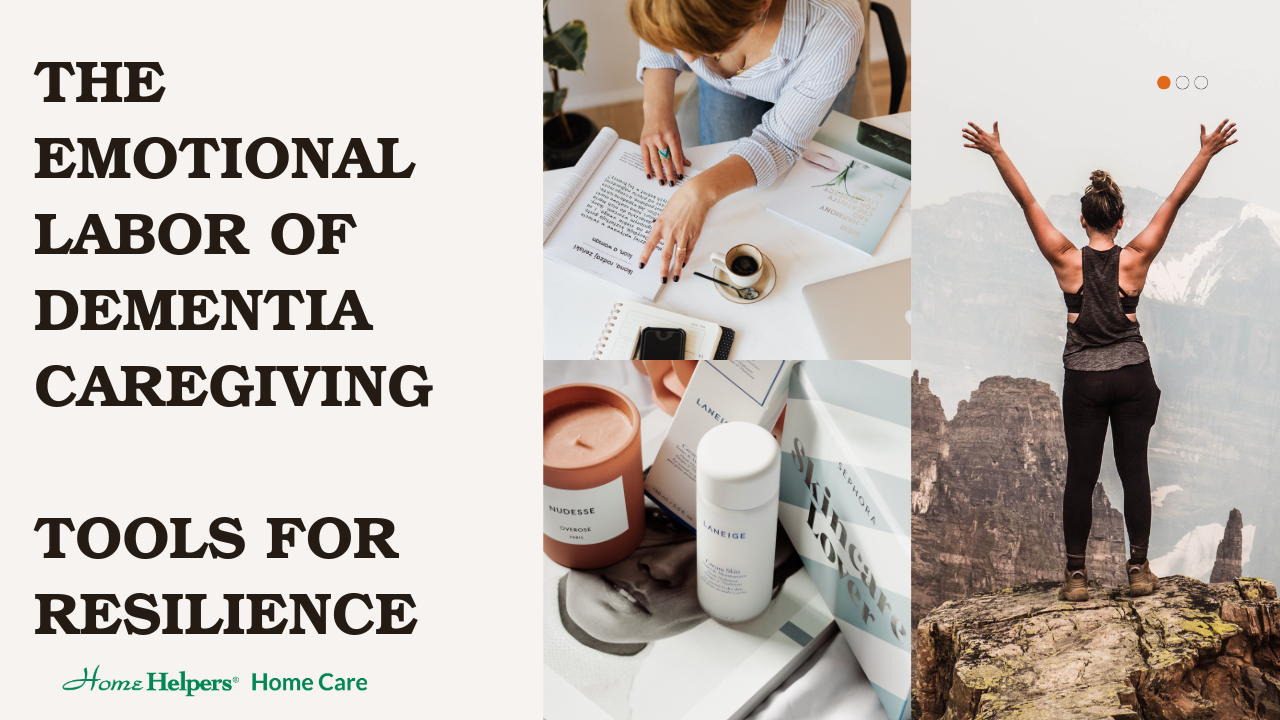The Emotional Labor of Dementia Caregiving: Tools for Resilience

Author: Home Helpers Martinsburg
Caring for someone with dementia is a profound act of love—but it’s also emotionally exhausting. As the disease progresses, caregivers face challenges that test their patience, self-worth, and mental health. Understanding the emotional toll of dementia caregiving—and learning how to build resilience—is critical for sustaining the caregiver and the quality of care provided.
The Emotional Weight of Caregiving
Dementia caregiving involves constant decision-making, loss of personal time, and witnessing a loved one change in heartbreaking ways. Caregivers often experience:
- Chronic stress and fatigue
- Guilt for losing patience or feeling resentment
- Grief for the relationship that once was
- Isolation from social circles and support networks
According to the Family Caregiver Alliance, 40-70% of family caregivers report symptoms of depression (FCA, 2023). The emotional toll can’t be overstated.
Recognizing Caregiver Burnout
Burnout isn’t just stress—it’s a state of physical, emotional, and mental exhaustion. Warning signs include:
- Feeling overwhelmed or constantly worried
- Losing interest in activities you once enjoyed
- Changes in sleep or eating habits
- Withdrawing from friends and family
- Becoming easily irritated or hopeless
If these feelings persist, it’s time to reassess your support system and self-care strategies.
Building Emotional Resilience
Resilience doesn’t mean avoiding difficult emotions—it means facing them with awareness, compassion, and tools for recovery. Here are proven ways caregivers can strengthen their emotional endurance:
- Seek Connection: Talk with friends, join a caregiver support group, or connect with a counselor.
- Practice Mindfulness: Even 5 minutes a day of deep breathing or guided meditation can reduce anxiety.
- Set Boundaries: It’s okay to say no. Protect your time and energy.
- Ask for Help: Share the load. Bring in professional caregivers for respite or daily support.
- Celebrate Small Wins: A calm bath, a shared laugh—these moments matter.
The Power of Professional Support
Hiring professional dementia care doesn’t mean you’re giving up—it means you’re taking care of yourself and your loved one. In-home caregivers can provide assistance with personal care, companionship, and redirection during challenging behaviors.
Having trained help relieves the constant vigilance and allows you to reconnect emotionally with your loved one, instead of being consumed by task lists.
You Don’t Have to Do It Alone
Caregivers often wait until they’re burned out before asking for help. But the earlier you build a support system, the better the outcome for everyone involved. In-home care can start with just a few hours a week and scale up as needed.
At Home Helpers Home Care of Martinsburg, our caregivers are trained in dementia support techniques and provide personalized, compassionate care that aligns with your loved one’s needs—and yours.
Final Thoughts
Dementia caregiving is emotionally intense—but you don’t have to carry it alone. Recognizing your limits and investing in support is not a weakness; it’s one of the strongest, most loving choices you can make.
If you’re feeling overwhelmed, reach out. Call Home Helpers Home Care of Martinsburg at (304) 433-8000 or visit homehelpershomecare.com/martinsburg to learn how we can support both you and your loved one.
References
- Family Caregiver Alliance. (2023). Caregiver Health. https://www.caregiver.org/resource/caregiver-health/
- Alzheimer’s Association. (2024). Tips for Caregivers. https://www.alz.org/help-support/caregiving
- Mayo Clinic. (2023). Caregiver stress: Tips for taking care of yourself. https://www.mayoclinic.org/healthy-lifestyle/stress-management/in-depth/caregiver-stress/art-20044784
